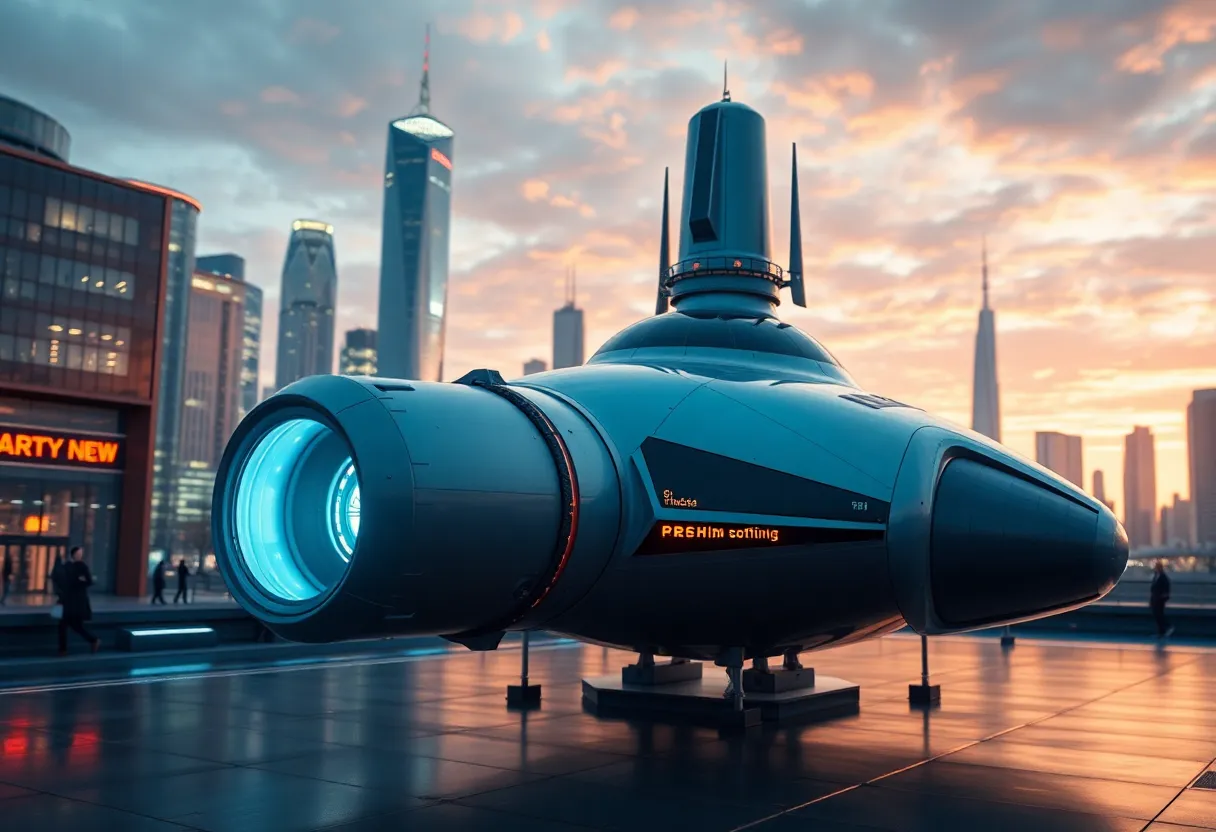News Summary
Pulsar Fusion, a UK-based startup specializing in nuclear propulsion technology, is making waves in Austin as it establishes a new base. Known for its innovative spacecraft, Sunbird, Pulsar aims to revolutionize space travel with its advanced propulsion systems. The company plans to start space tests for its technology by 2027, integrating artificial intelligence for efficiency. With new partnerships and expansions in both Austin and the UK, Pulsar Fusion is poised to contribute significantly to space exploration and clean energy solutions.
Austin, Texas – Pulsar Fusion, a UK-based nuclear propulsion startup, has announced its expansion into the United States with the opening of a new office in Austin, Texas. This move aims to enhance engagement with American clients and investors, marking a significant step forward in the company’s mission to advance space propulsion technology through nuclear fusion.
The establishment of the Austin office follows over a decade of dedicated research, development, and testing of Pulsar’s nuclear propulsion technology. This expansion comes as the company continues to develop its fusion spacecraft, known as Sunbird, which incorporates an innovative dual direct fusion drive along with eight Hall-effect thrusters. The Sunbird system is expected to achieve thrust speeds of up to 329,000 mph, allowing for unprecedented precision in maneuverability for space missions.
Pulsar Fusion has set ambitious goals for its technology, planning to conduct space tests of its nuclear fusion propulsion systems by 2027. Excitingly, the company anticipates testing components of the Sunbird’s power system in orbit as soon as this year. Ground-based tests of the fusion technology are also ramping up, demonstrating the company’s ongoing commitment to advancing its capabilities.
At the heart of Pulsar’s innovation is the integration of artificial intelligence, which has enabled the development of smaller, smarter, and more efficient reactors tailored for space applications. According to CEO Richard Dinan, this technology is viewed as more suitable for space travel than for terrestrial energy applications, positioning Pulsar Fusion as a unique player in the propulsion technology landscape.
In addition to its new office in Texas, Pulsar has made strategic partnerships that bolster its research and development efforts. The company has signed a Memorandum of Understanding with Thales Alenia Space concerning its 5kW MOONRANGER Hall-effect thrusters, which are currently undergoing live test-firing. This collaboration underscores Pulsar’s commitment to refining its propulsion technology through robust testing and innovation.
Back in the United Kingdom, Pulsar is scaling up its facilities in Bletchley to accommodate the largest space-grade vacuum chambers in the UK, designed for advanced testing of their technologies. This expansion reflects the company’s intent to not only develop propulsion systems for space exploration but also explore potential clean energy solutions for Earth.
In a recent concept video, Pulsar illustrated potential future missions to Titan, Saturn’s largest moon. The video showcased how Pulsar’s advanced fusion systems could dramatically reduce travel times for spacecraft traversing the solar system, a possibility that could revolutionize space exploration.
Pulsar Fusion was originally established in 2013 under the name Applied Fusion Systems. Throughout its development, the company has secured multiple funding rounds from the UK Space Agency, reflecting strong governmental and private sector support for their innovative approach to advanced propulsion technologies.
The launch of the Austin office forms part of Pulsar’s holistic strategy to leverage both US and UK resources and expertise, indicating its determination to push the boundaries of what is currently possible in space travel and energy. As the company prepares to carry out its testing and collaboration plans, the global space community will be watching closely to see how this groundbreaking technology unfolds.
Deeper Dive: News & Info About This Topic
- Payload Space
- KVUE
- Satellite News
- Morningstar
- KVUE Video
- Wikipedia: Fusion Propulsion
- Google Search: Pulsar Fusion
- Google Scholar: Pulsar Fusion
- Encyclopedia Britannica: Pulsar Fusion
- Google News: Pulsar Fusion
Author: STAFF HERE GEORGETOWN
The GEORGETOWN STAFF WRITER represents the experienced team at HEREgeorgetown.com, your go-to source for actionable local news and information in Georgetown, Williamson County, and beyond. Specializing in "news you can use," we cover essential topics like product reviews for personal and business needs, local business directories, politics, real estate trends, neighborhood insights, and state news affecting the area—with deep expertise drawn from years of dedicated reporting and strong community input, including local press releases and business updates. We deliver top reporting on high-value events such as the Red Poppy Festival, Georgetown Swirl, and Christmas Stroll. Our coverage extends to key organizations like the Georgetown Chamber of Commerce and the Downtown Georgetown Association, plus leading businesses in manufacturing and tourism that power the local economy such as local wineries and historic downtown shops. As part of the broader HERE network, including HEREaustin.com, HEREcollegestation.com, HEREdallas.com, HEREhouston.com, HEREgeorgetown.com, and HEREsanantonio.com, we provide comprehensive, credible insights into Texas's dynamic landscape.






